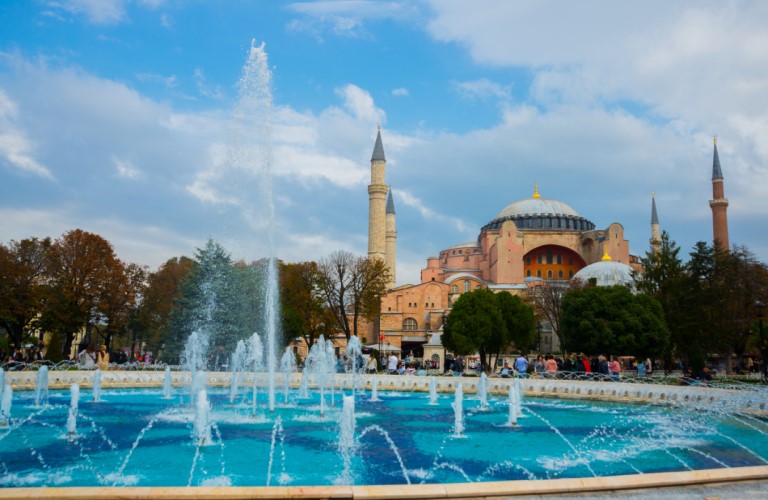
What to Pack for a Holiday in Turkey: Comprehensive Guide
Turkey is a country of incredible diversity, offering everything from the bustling streets of Istanbul to the serene beaches of the Mediterranean, and from ancient ruins to the surreal landscapes of Cappadocia. Packing for a holiday in Turkey requires thoughtful consideration due to its varied climate, rich cultural heritage, and diverse activities. Whether you’re exploring historical sites, relaxing by the sea, or hiking through mountainous terrains, this comprehensive guide will help you pack everything you need for a smooth and enjoyable trip.
Packing Tips for Your Turkey Travel Adventure
Packing for a holiday in Turkey involves more than just throwing clothes into a suitcase. The country’s geographical and cultural diversity means that what you need can vary greatly depending on your destination and the time of year. This guide will cover essential items for different types of activities and climates, ensuring you’re well-prepared for your Turkish adventure. Turkey travel Itineraries
Understanding Turkey's Climate and Seasons
Turkey Climate Overview
Turkey experiences a range of climates due to its diverse geography. Understanding these climates will help you pack appropriately for your trip.
- Mediterranean Climate: Coastal areas, including Antalya and Izmir, have hot, dry summers and mild, wet winters.
- Continental Climate: Central Anatolia, including cities like Ankara and Cappadocia, experiences extreme temperatures with hot summers and cold winters.
- Oceanic Climate: The Black Sea region has mild temperatures and significant rainfall throughout the year.
Seasonal Considerations in Turkey
- Spring (March to May): Temperatures are moderate, with blooming flowers and a pleasant climate.
- Summer (June to August): Hot and sunny, especially in coastal areas. Prepare for high temperatures and potential sunburn.
- Autumn (September to November): Mild and comfortable, with cooler evenings. Ideal for exploring cities and countryside.
- Winter (December to February): Cold in inland areas and snowy in some regions. Coastal areas are milder but can be rainy.

Essential Clothing in Turkey
Basic Wardrobe
- Comfortable Footwear: Pack sturdy walking shoes or sneakers for exploring cities and historical sites. For beach destinations, bring sandals or flip-flops.
- Lightweight Layers: Consider packing lightweight clothing that can be layered. This allows you to adapt to varying temperatures and indoor air conditioning.
- Swimwear: Essential for beach and poolside relaxation. Include a swimsuit, beach cover-up, and possibly a rash guard for sun protection.
Cultural Sensitivity
- Modest Clothing: When visiting religious sites, dress modestly. Women should cover their shoulders and wear skirts or pants that cover the knees. Men should avoid wearing shorts.
- Headscarves: For visiting mosques, women are expected to cover their heads. Carry a lightweight scarf or shawl for this purpose.
Seasonal Clothing
- Summer: Pack light, breathable fabrics such as cotton and linen. Include hats, sunglasses, and sunblock to protect against the sun.
- Winter: Bring warm clothing, including a heavy coat, gloves, scarves, and hats. Thermal layers can be useful for colder regions.
Accessories and Extras
Travel Essentials
- Travel Documents: Ensure you have your passport, visa (if required), travel insurance, and copies of important documents.
- Money and Cards: Carry some Turkish lira for cash purchases. Credit and debit cards are widely accepted, but it’s good to have cash for small vendors.
Technology
- Adapters and Chargers: Turkey uses Type F electrical outlets. Bring a power adapter and charger for your electronic devices.
- Camera: To capture the stunning landscapes and historic sites, a good camera or smartphone with a quality camera is essential.
Health and Safety
- First Aid Kit: Pack a basic first aid kit with essentials like band-aids, antiseptic, pain relievers, and any personal medications.
- Sun Protection: Sunscreen with high SPF, lip balm with SPF, and sunglasses are crucial for protecting against the sun.
- Insect Repellent: Depending on the season and region, insect repellent might be necessary, particularly in rural or forested areas.s
Adventure Travel
- Hiking Gear: If you plan to hike, bring appropriate gear such as hiking boots, trekking poles, and a backpack.
- Water Bottle: Stay hydrated during outdoor activities with a reusable water bottle.
Beach Vacation
- Beach Towel: Pack a beach towel or mat for lounging by the sea.
- Snorkeling Gear: If you plan to snorkel, consider bringing your own gear or check availability at your destination.
City Exploration
- Comfortable Walking Shoes: Ensure you have comfortable shoes for exploring cities on foot.
- Reusable Shopping Bag: Handy for shopping and reducing plastic waste.
Packing Tips for a Trip to Turkey
Efficient Packing
- Roll Your Clothes: Rolling clothes instead of folding them can save space and reduce wrinkles.
- Packing Cubes: Use packing cubes to organize and compartmentalize your items, making it easier to access what you need.
- Layering: Pack versatile items that can be layered for different weather conditions.
Avoid Overpacking
- Stick to a List: Create a packing list based on your itinerary to avoid bringing unnecessary items.
- Check Baggage Limits: Be aware of airline baggage limits to avoid excess baggage fees.

Special Considerations
Dietary Restrictions
- Special Foods: If you have dietary restrictions, bring snacks or special foods that may not be readily available in Turkey.
Traveling with Children
- Child-Friendly Items: Pack essentials for children, such as snacks, toys, and comfort items. Consider bringing a lightweight stroller for city exploration.
Traveling with Pets
- Pet Travel Documents: Ensure you have all necessary documents and supplies for traveling with pets, including pet passports and vaccinations.
Cultural and Practical Considerations
Respecting Local Customs
- Dress Modestly: In addition to religious sites, modest dressing is appreciated in many areas of Turkey. It shows respect for local customs and traditions.
Shopping for Essentials
- Local Stores: If you forget something, you can find most essentials in local shops. Major cities have numerous stores and shopping centers.
Packing Essentials for a Holiday in Turkey
Packing for a holiday in Turkey involves balancing practicality with cultural sensitivity. By considering the climate, planned activities, and local customs, you can ensure you have everything you need for a comfortable and enjoyable trip. From comfortable clothing and essential travel documents to specialized gear for adventure or beach vacations, this comprehensive guide will help you prepare for an unforgettable experience in this beautiful and diverse country. Turkey travel packages


